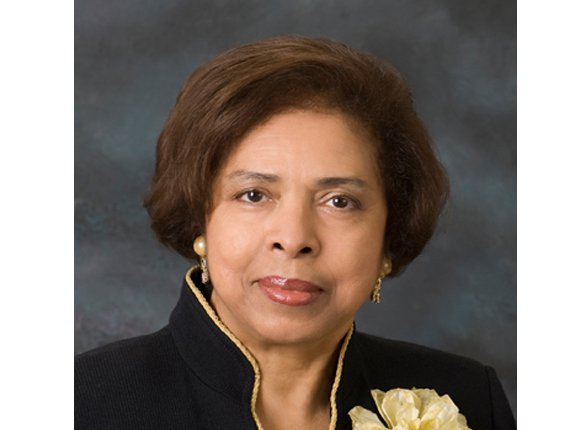The status quo
7/22/2016, 2:20 p.m.
E. Faye Williams
Like millions, I am shocked and appalled by the needless killing of Alton Sterling, Philando Castile, five Dallas police officers, and three Baton Rouge police officers.
Respect for humanity requires that we reject, in the strongest terms, the unwarranted and unjustified taking of life. I search earnestly for answers to the “why?” of their executions and the reason that, after 240 years, our nation still sustains a level of racial hatred and intolerance that fuels these acts of violence.
Anyone giving an honest look at our national tragedy of racial violence, especially the epidemic of cop-on-citizen homicide, will agree that we, as a nation, have a conflict of major proportion that must be addressed and resolved if any of us are to live with the assurance of even a modicum of peace. The back and forth response of violence and retaliation can only lead to our mutual destruction.
Accomplishing a successful negotiation between conflicting entities is, more often than not, a monumental task. Those who practice this type of negotiation will usually identify three essential requirements for success: There must be agreement between parties as to the nature of the conflict; the conflicting parties must communicate in a “common” language; and the conflicting parties must communicate honestly without ulterior motive or deceit.
Although I don’t profess to offer an empirical evaluation of these elements of resolution as they apply to our “national disgrace,” I can offer a personal evaluation based upon years of observation.
First, there appears to be insufficient understanding and agreement as to the nature of our problem among those with the authority and responsibility to make constructive change. My assessment is that few, with the exception of those experiencing racial discrimination, understand the cumulative effect of discriminatory acts.
I’m reminded of the old adage that one can only beat a dog for so long before he’ll attack out of rage and frustration at receiving needless beatings.
Unlike the time when some of us were conditioned to accept the indignities of discrimination “as a matter of the way things were,” most black people are no longer willing to accept these indignities that accumulate in our psyches and eventually distort our relationships with others and our place in the world.
Too many white people feign ignorance of the racial discrimination impacting our community and consider the acts as isolated incidents which have little or no connection to a larger reality. They don’t see that with each act of racial injustice or violence, there’s a corresponding increase in the level of anger in our communities.
Lacking a common understanding of the problem, there’s little hope that we can establish a reasoned dialogue. We’re speaking uncommon languages to each other.
I refer to those who listened to former New York City Mayor Rudy Giuliani explain that, instead of police violence, the real problem in our community is black-on-black violence. Failing to acknowledge multi-generational practices that have left many of us unable to compete economically or to maintain minimal parity with white people, Mr. Giuliani doubled-down on justifying disparate and unethical policing practices in black communities. His motives are clear.
Mr. Giuliani, like too many others, wishes to maintain the social status quo — so nothing changes.
The writer is national president of the National Congress of Black Women.






